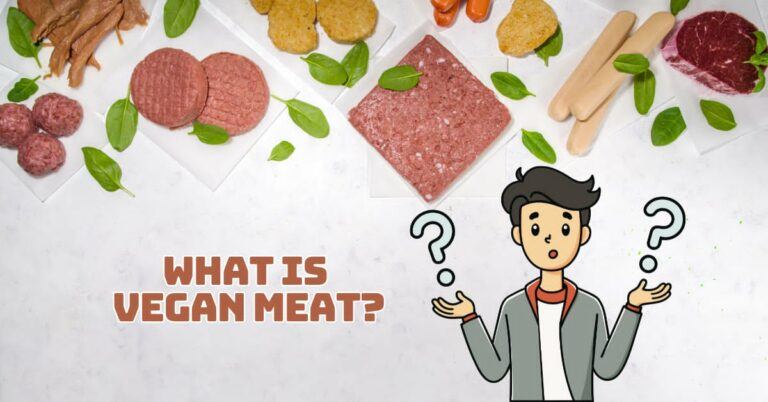What Is A Vegan Diet
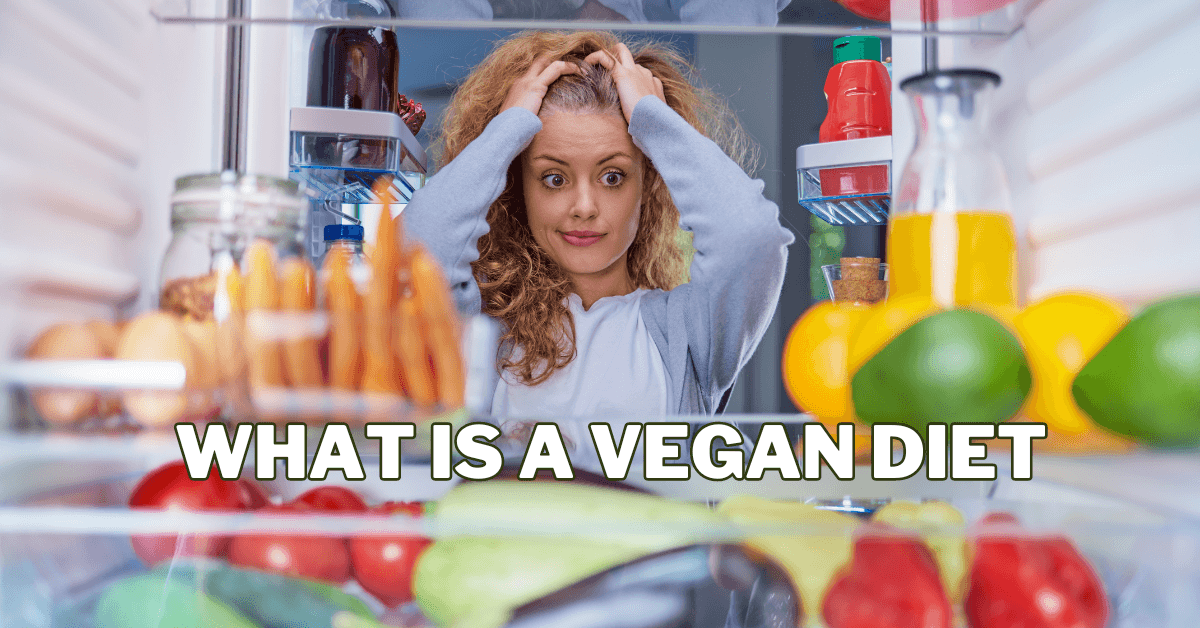
What Is A Vegan Diet
A vegan diet is a plant-based eating pattern that excludes all animal products and by-products, including meat, dairy, eggs, and honey.
Instead, it focuses on consuming various fruits, vegetables, grains, legumes, nuts, and seeds to meet nutritional needs.
This dietary choice is motivated by ethical, environmental, and health considerations, as vegans aim to minimize harm to animals, reduce their carbon footprint, and improve their health by adopting a diet rich in whole, nutrient-dense foods.
Living a vegan lifestyle entails more than just dietary adjustments; it's about adopting an eco-friendly and cruelty-free way of living that extends to clothing, personal care products, and household goods.
More and more individuals are adopting this ecologically conscious way of life as veganism gains popularity due to rising awareness of animal welfare issues, environmental sustainability, and health advantages.
In this article, we will explore the principles of a vegan diet, its health benefits and potential challenges, tips for transitioning to a vegan lifestyle, and practical advice for maintaining a balanced and nutritious plant-based diet.
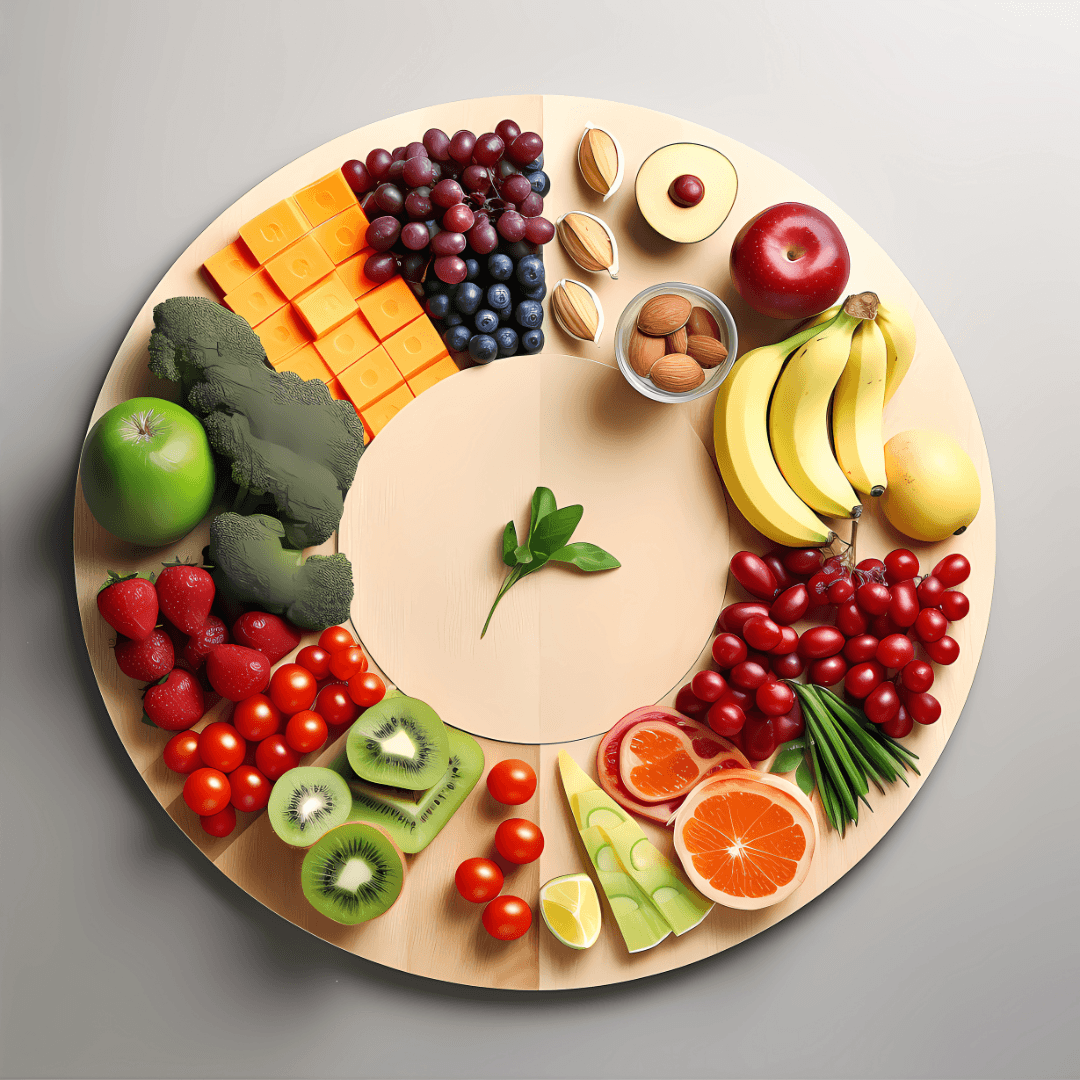
Definition Of A Vegan Diet
A vegan diet consists entirely of plant-based foods without animal products or byproducts. It strongly emphasizes eating abundant fruits, vegetables, grains, legumes, nuts, and seeds instead of animal-based foods like meat, fish, poultry, dairy, eggs, and honey.
The core principles of veganism go beyond dietary limitations and include an approach to living that seeks to protect the environment, lessen animal suffering, and enhance human health.
At its essence, veganism is rooted in compassion for animals, driven by the belief that sentient beings should not be exploited or harmed for human consumption.
By abstaining from animal products, vegans aim to reduce the demand for industries that exploit animals for food, clothing, entertainment, and other purposes.
This ethical stance aligns with the broader philosophy of animal rights and welfare, advocating for all living beings' fair treatment and liberation.
In addition to its ethical foundation, veganism is also driven by environmental sustainability concerns.
By choosing plant-based foods over animal products, vegans strive to minimize their ecological footprint and mitigate the environmental impacts of animal agriculture.
From a health perspective, a well-planned vegan diet can offer numerous benefits. Eating a diet rich in vitamins, minerals, fibre, and antioxidants derived from plants has decreased the risk of chronic illnesses such as diabetes, cancer, heart disease, and obesity.
If vegans emphasize whole, minimally processed foods and include a variety of plant foods in their diet, they can meet their nutritional needs and achieve optimal health outcomes.
Overall, a vegan diet represents more than just a way of eating; it reflects a commitment to compassion, sustainability, and personal well-being.
As awareness grows about food choices' ethical, environmental, and health implications, more individuals are embracing veganism as a path to a more compassionate and sustainable world.
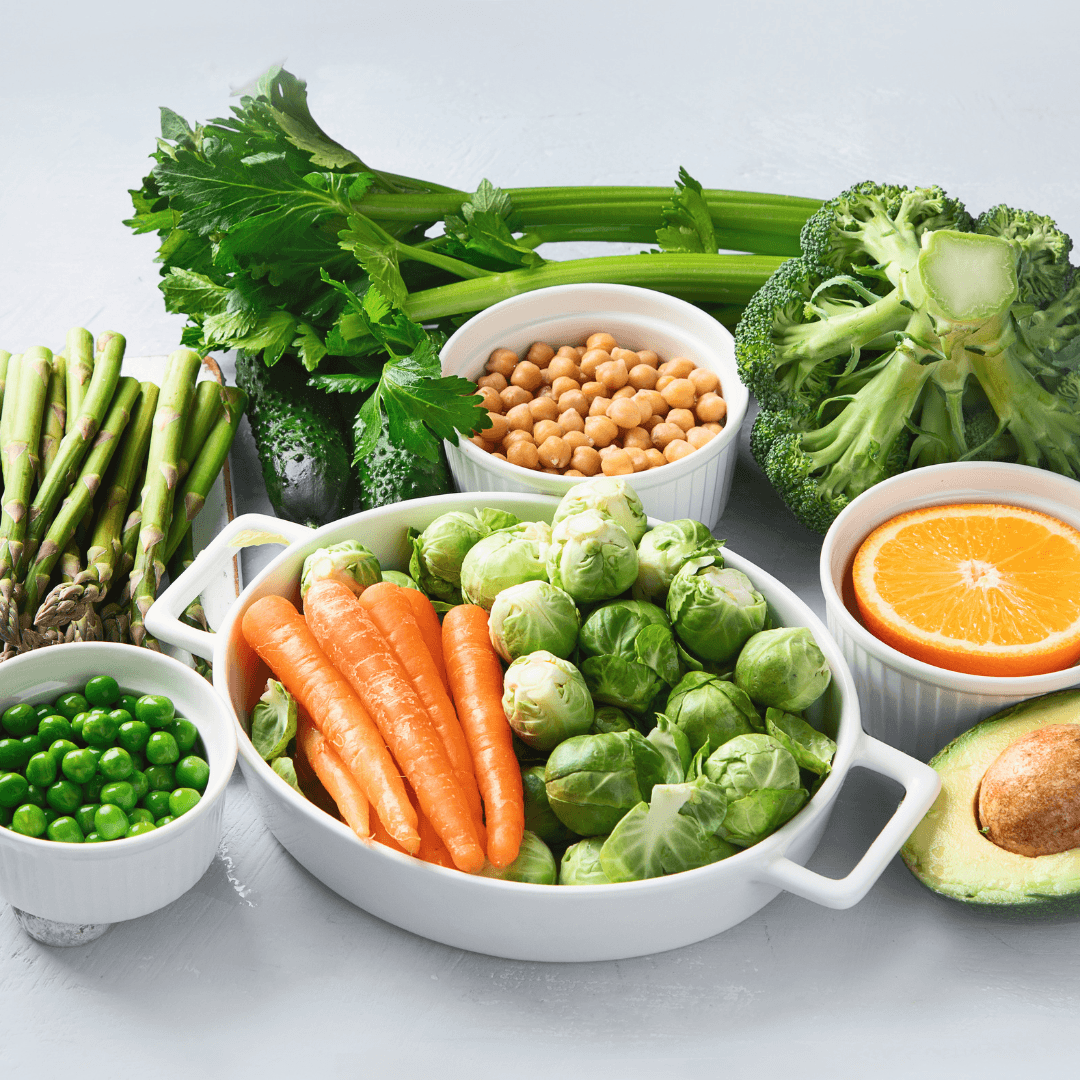
Types Of Vegan Diets
There is no one-size-fits-all strategy when it comes to living a vegan lifestyle. The vegan diet includes a variety of dietary approaches and ideologies, each with its own specific goals and tenets.
There are various vegan diets, each with unique focus points and variations. The following are a few of the most typical kinds:
1. Whole Food Vegan Diet
The entire food vegan diet revolves around consuming nutrient-dense, unprocessed plant foods in their natural state.
This dietary approach prioritizes fruits, vegetables, whole grains, legumes, nuts, and seeds while minimizing or excluding processed foods, refined grains, added sugars, and oils.
Individuals following this diet aim to maximize their intake of essential vitamins, minerals, antioxidants, and dietary fiber while minimizing exposure to artificial additives and preservatives by focusing on whole foods.
This dietary pattern aligns with principles of healthful eating, emphasizing the importance of whole, plant-based foods for optimal well-being.
Rich and varied in nutrients, whole foods promote many body processes, such as digestion, immunological response, cardiovascular health, and mental performance.
A whole-food vegan diet, which avoids highly processed and refined foods, may help people manage their weight better, have more energy, and reduce their risk of developing chronic illnesses such as diabetes, heart disease, and cancer.

2. Raw Vegan Diet
The raw vegan diet centers on consuming predominantly raw, uncooked plant foods, emphasizing fruits, vegetables, nuts, seeds, sprouted grains, and legumes.
Advocates of this dietary approach believe that cooking foods can lead to losing vital nutrients and enzymes. Hence, they opt for raw foods to preserve these essential elements.
By consuming foods in their natural state, raw foodists aim to maximize their intake of nutrients, antioxidants, and enzymes, which they believe are essential for optimal health and vitality.
This diet typically involves food preparation methods such as soaking, sprouting, blending, and dehydrating to enhance flavour and texture while maintaining the foods' raw status.
Raw veganism encourages creativity in the kitchen and promotes a diverse array of plant-based foods to ensure adequate nutrient intake.
While proponents of the raw vegan diet tout its potential health benefits, including improved digestion, increased energy levels, and enhanced vitality, it's important to note that this dietary approach may require careful planning to meet all nutritional needs and ensure balanced meals.
3. High-Carb, Low-Fat (HCLF) Vegan Diet
The High-Carb, Low-Fat (HCLF) vegan diet emphasizes a high intake of carbohydrates from whole plant foods while limiting the consumption of fats and oils.
This dietary approach prioritizes foods such as fruits, vegetables, whole grains, and legumes, which are naturally rich in carbohydrates and low in fat.
HCLF vegans aim to promote satiety, maintain stable blood sugar levels, and support overall health by emphasizing carbohydrates as the primary energy source.
Proponents of the HCLF vegan diet believe that focusing on carbohydrates from whole plant foods provides essential nutrients, including fiber, vitamins, and minerals while minimizing the intake of processed and refined fats.
This approach may also appeal to individuals seeking weight management or athletic performance benefits, as carbohydrates are readily available for energy production during physical activity.
A balanced nutrient intake and careful monitoring of fat intake are crucial to achieving specific dietary needs and objectives, even though the HCLF vegan diet may positively affect insulin sensitivity and weight management.
The HCLF vegan diet can be customized to an individual's health and nutritional needs by speaking with a registered dietitian or healthcare provider.

4. Junk Food Vegan Diet
The Junk Food Vegan Diet, colloquially known as “vegan junk food,” involves consuming processed and convenience vegan foods that mimic traditional animal-based dishes.
These foods include vegan burgers, fries, desserts, snacks, and other indulgent treats. While technically adhering to vegan principles by excluding animal products, these food choices are often highly processed and contain excessive amounts of refined sugars, unhealthy fats, and additives.
While occasional consumption of vegan junk food may fit into a balanced diet, relying heavily on these processed options can have negative health implications.
High-calorie content and low nutritional value can contribute to weight gain, nutrient deficiencies, and adverse effects on overall health.
Consuming processed vegan food frequently may also raise your risk of developing long-term health issues like diabetes, obesity, and heart disease.
Individuals following a Junk Food Vegan Diet should prioritize incorporating whole, nutrient-dense plant foods into their meals to ensure adequate intake of essential nutrients.
Moderation and mindful food choices are key to maintaining a healthy balance while enjoying occasional indulgences within a varied and balanced vegan diet.

5. Gluten-Free Vegan Diet
The Gluten-Free Vegan Diet eliminates not only animal products but also all sources of gluten, a protein found in wheat, barley, and rye.
This dietary approach caters to individuals who have celiac disease, gluten sensitivity, or choose to avoid gluten for other health reasons.
Foods allowed on a gluten-free, vegan diet include naturally gluten-free options like fruits, vegetables, and gluten-free grains such as rice, quinoa, millet, legumes, nuts, and seeds.
These foods provide essential nutrients while adhering to both vegan and gluten-free principles.
While the Gluten-Free Vegan Diet offers health benefits for those with gluten-related disorders, it requires careful planning to ensure adequate nutrient intake, especially for nutrients commonly found in fortified wheat products, such as B vitamins and iron.
Individuals following this diet should focus on incorporating various nutrient-dense foods and may benefit from consulting with a registered dietitian to address any potential nutritional gaps.
6. Raw Till 4 (RT4) Vegan Diet
The Raw Till 4 (RT4) Vegan Diet is a dietary approach that combines elements of raw veganism with the inclusion of cooked vegan meals later in the day.
Followers of this diet typically consume raw, plant-based foods such as fruits, vegetables, nuts, and seeds until 4 p.m.
During this period, the emphasis is on consuming raw foods in their natural state to maximize nutrient intake and promote overall health.
After 4 p.m., individuals following the RT4 diet may incorporate cooked vegan meals into their eating plan.
These cooked meals often include whole grains, legumes, vegetables, and plant-based protein sources.
Including cooked foods in the evening provides variety in taste and texture while adhering to vegan principles.
The Raw Till 4 Vegan Diet offers the benefits of raw food consumption, such as increased nutrient density and enzymatic activity, while addressing the practicality and social aspects of consuming cooked meals.
However, like any dietary approach, it's essential to ensure a balanced intake of nutrients and listen to your body's hunger and satiety cues while following the RT4 diet.
These are just a few examples of the many variations of vegan diets. Individuals may choose a vegan diet based on personal preferences, health goals, ethical beliefs, or dietary restrictions.
It's essential to tailor the diet to meet individual nutritional needs and preferences while ensuring adequate intake of essential nutrients.
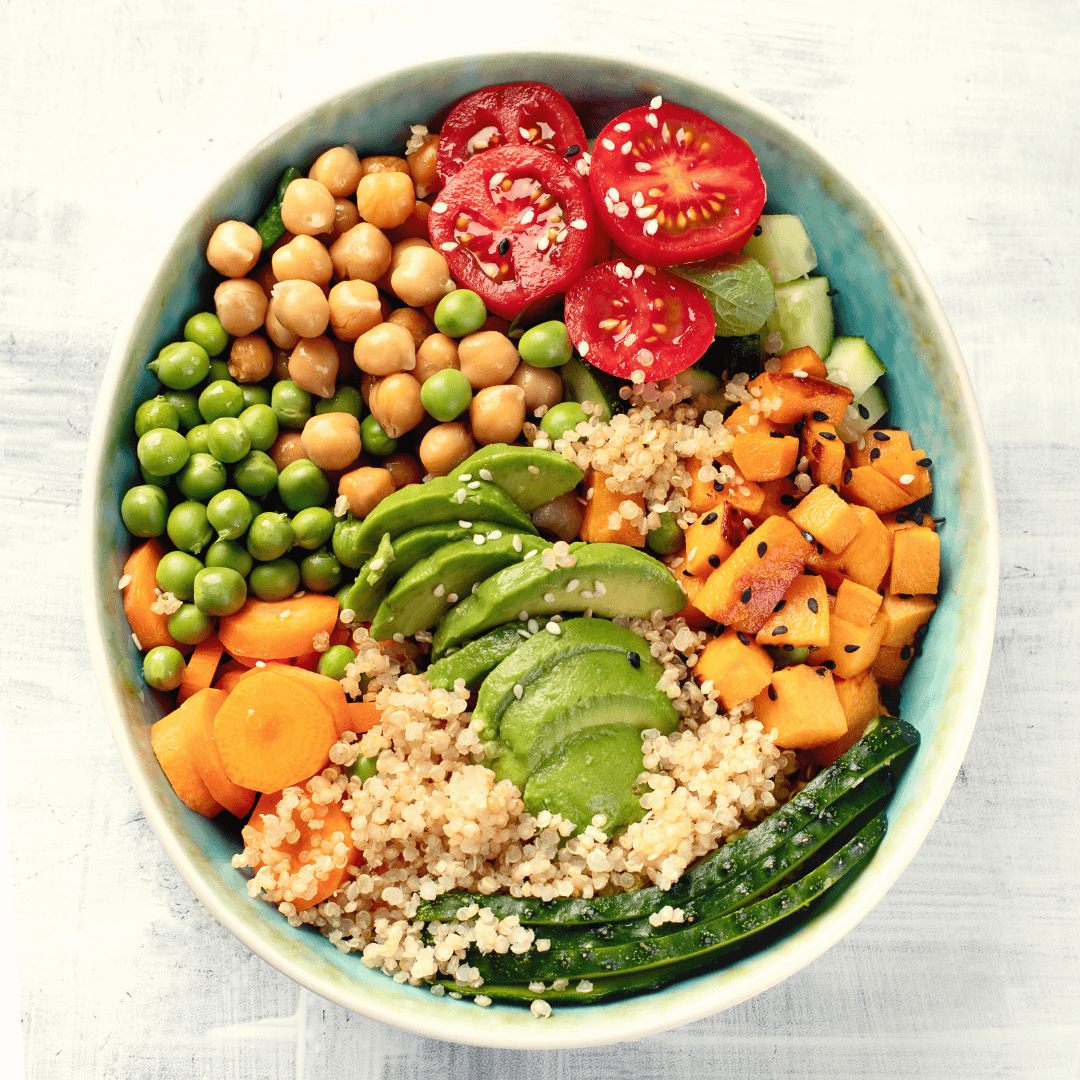
Health Benefits Of A Vegan Diet
The vegan diet, characterized by excluding all animal products, has been associated with numerous health benefits supported by scientific research. Some of these benefits include:
1. Reduced Risk Of Chronic Diseases
Whole grains, fruits, vegetables, nuts, seeds, legumes, and other vital nutrients and antioxidants that have been shown to reduce the risk of developing chronic illnesses are abundant in vegan diets.
The high fiber content lowers the risk of heart disease and hypertension while maintaining healthy cholesterol and blood pressure levels. Because plant-based diets control blood sugar levels, they lower the risk of type 2 diabetes.
Phytonutrients found in colourful fruits and vegetables are anti-inflammatory and antioxidant, guarding against cellular damage and cancer development.
By prioritizing these nutrient-dense foods, individuals can fortify their bodies against chronic illnesses, promoting long-term health and well-being.
2. Improved Heart Health
Vegan diets, low in saturated fat and cholesterol found in animal products, improve heart health by reducing LDL (bad) cholesterol levels and lowering the risk of heart disease.
The abundance of fiber in plant foods aids in maintaining healthy blood pressure and cholesterol levels, further supporting cardiovascular function.
Individuals can protect their hearts from inflammation and oxidative stress by prioritizing plant-based foods rich in antioxidants, vitamins, and minerals.
These dietary choices promote heart health and contribute to overall well-being, highlighting the benefits of a vegan lifestyle for cardiovascular health.
3. Weight Management
Vegan diets, characterized by their lower calorie density and higher fiber content from fruits, vegetables, whole grains, and legumes, facilitate weight management.
These nutrient-dense foods provide satiety, helping individuals feel full on fewer calories.
Additionally, the high fiber content aids in regulating digestion and promoting gastrointestinal health, further supporting weight control.
By emphasizing plant-based foods over calorie-dense animal products, individuals can achieve a healthier body weight and reduce the risk of obesity-related conditions.
Moreover, a vegan diet's focus on whole, unprocessed foods encourages mindful eating habits and may contribute to long-term weight maintenance success.
4. Improved Digestive Health
Plant-based diets, which are high in foods high in fiber, such as fruits, vegetables, and whole grains, encourage regular bowel movements and guard against common digestive problems like constipation.
These foods contain fiber, which gives stool more volume and helps it pass through the digestive system more easily, lessening the chance of discomfort or bloating.
Furthermore, a plant-based diet supports a diverse and healthy gut microbiome, crucial to digestion and overall well-being.
By reducing the intake of processed foods and animal products known to contribute to digestive issues, individuals following a vegan diet may experience relief from gastrointestinal discomfort and a reduced risk of developing chronic digestive conditions like diverticulosis and colorectal cancer.
5. Enhanced Nutritional Intake
The emphasis on nutrient-dense foods like fruits, vegetables, whole grains, nuts, seeds, and legumes in plant-based diets is linked to increased nutritional intake.
Due to their abundance of vital vitamins, minerals, antioxidants, and phytonutrients, these foods offer several health advantages.
Studies show that vegans frequently consume more important nutrients like magnesium, potassium, folate, and vitamins C and E than non-vegetarians.
Plant-based diets also inherently have lower levels of saturated fat and cholesterol, which are prevalent in animal products.
It also reduces the chance of chronic diseases like heart disease and type 2 diabetes and enhances overall nutrition.
Planning is necessary to ensure you get enough nutrients from your vegan diet, even though it can have many health benefits.
6. Reduced Inflammation
Plant-based diets are renowned for reducing inflammation in the body, primarily due to their emphasis on anti-inflammatory foods like fruits, vegetables, nuts, seeds, and whole grains.
These plant foods are rich in antioxidants, phytonutrients, and fiber, crucial in modulating the body's inflammatory response.
By consuming various nutrient-dense foods, individuals on a plant-based diet can effectively combat chronic inflammation, reducing the risk of inflammatory conditions such as arthritis, asthma, and inflammatory bowel diseases.
Plant-based diets are typically lower in pro-inflammatory substances like saturated fat and processed foods, further supporting their anti-inflammatory effects.
A plant-based diet can improve overall health and reduce the risk of chronic inflammatory diseases.
7. Enhanced Skin Health
A plant-based diet abundant in fruits, vegetables, and healthy fats can remarkably benefit skin health.
These foods provide essential vitamins, minerals, and antioxidants that support collagen production, reduce inflammation, and combat oxidative stress, which are crucial for maintaining healthy skin.
By consuming various colourful plant foods, vegans can nourish their skin from within, improving their complexion, reducing acne, and delaying signs of aging.
Additionally, plant-based diets are typically lower in inflammatory and processed foods, which can contribute to skin issues.
Choosing a vegan diet rich in nutrient-dense plant foods can promote radiant, youthful-looking skin and contribute to overall well-being.
8. Better Longevity
A vegan diet has been linked to potential longevity benefits due to its association with lower mortality rates and a reduced risk of chronic diseases.
By avoiding animal products and focusing on whole, plant-based foods, individuals may experience improved heart health, lower blood pressure, and better weight management, all of which contribute to overall well-being and longevity.
Additionally, plant foods' abundance of vitamins, minerals, and antioxidants supports cellular health and may help protect against age-related diseases.
When paired with other health-conscious lifestyle practices like regular exercise and stress reduction, a vegan diet can help people live longer and have a better quality of life as they age.
9. Reduced Risk Of Kidney Stones
A vegan diet, abundant in fruits and vegetables, offers an alkaline environment within the body, potentially lowering the risk of kidney stone formation.
By maintaining a healthy pH balance, the diet can hinder the crystallization of substances like calcium oxalate and uric acid in the kidneys, thus supporting urinary tract health.
The alkalinity of plant-based foods helps prevent the acidic conditions that favour the development of kidney stones.
Additionally, the high fluid content in fruits and vegetables promotes hydration and urine production, flushing out minerals and toxins from the kidneys.
Choosing a vegan diet rich in alkaline-forming foods may contribute to a reduced risk of kidney stones and support overall kidney health.
A well-planned vegan diet can, in general, promote long-term well-being and provide a host of health advantages.
But, it's critical to ensure you get enough of the vital nutrients you need, like protein, iron, calcium, omega-3 fatty acids, vitamin B12, and fortified foods and supplements when needed.
A vegan diet can be customized to a person's nutritional requirements by speaking with a registered dietitian or other healthcare provider.
Conclusion
In conclusion, a vegan diet represents more than just a dietary choice; it embodies a lifestyle centred on compassion, sustainability, and personal health.
By abstaining from animal products and embracing plant-based foods, individuals reduce their environmental footprint and contribute to the well-being of animals and their own health.
Moreover, choosing a vegan diet encourages mindfulness about food choices, fostering a deeper connection with the sources of our nourishment and the impact of our dietary decisions on the planet.
As awareness about the ethical, environmental, and health implications of dietary habits continues to grow, the popularity of veganism as a sustainable and compassionate lifestyle choice will likely increase.
Ultimately, embracing a vegan diet represents a powerful step towards creating a healthier, more compassionate world for humans and animals.
I trust you enjoyed reading the article on What Is A Vegan Diet? Please stay tuned. There are more blog posts to come very shortly.
JeannetteZ
>>>Please click here to read my Vegan Travel Guides To World Destinations<<<
>>>Want To Learn How To Create Delicious, Cruelty-Free, Healthy AND 100% Vegan Meals? Try These Awesome Vegan Cooking Courses With A Free 7-DAY MEMBERSHIP<<<
Your Opinion Is Important To Me
Ideas? Thoughts? Questions? I would love to hear from you. Please leave me your questions, experiences, and remarks about What Is A Vegan Diet in the comments section below. You can also reach me by email at Jeannette@LivingTheVeganLifestyle.org.
>>>Please click here to read more about the Vegan Diet on Wikipedia<<<
Disclosure
This post may contain affiliate links. I earn from qualifying purchases as an Amazon Associate and other affiliate programs. Please read my full disclosure.
Here are some links to some of my favourite articles:
Vegan vs Vegetarian Is One Better Than The Other
Top Health Reasons To Go Vegan
Environmental Reasons To Go Vegan






